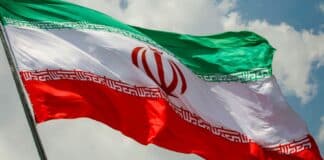Poland’s Foreign Minister Radek Sikorski called for Russia’s suspension from the Organization for Security and Co-operation in Europe (OSCE) during a meeting in Malta on Thursday, accusing Moscow of attempting to rebuild its empire. Sikorski led a walkout of European delegations in protest against Russian Foreign Minister Sergei Lavrov’s presence.
Sikorski, along with representatives from Poland, Lithuania, Estonia, and Czechia, left the room as Lavrov began speaking. “We will not succumb to this cascade of lies,” Sikorski stated, accusing Russia of spreading disinformation about its war in Ukraine. He emphasized that Russia’s continued aggression invalidates its role in the OSCE, a body established during the Cold War to prevent conflict through dialogue.
Lavrov, on his first trip to an EU member state since Russia’s renewed invasion of Ukraine, dismissed the walkout and accused Western nations of escalating the conflict. He claimed U.S. involvement in Ukraine was designed to distract from President Biden’s withdrawal from Afghanistan, calling it “the reincarnation of the Cold War.”
While Central European nations staged their protest, U.S. Secretary of State Antony Blinken remained in the room. Despite strained U.S.-Russia relations, there were signs of potential diplomatic engagement. On the same day, U.S. Joint Chiefs of Staff Chairman General Charles Brown held a rare phone call with his Russian counterpart, General Valery Gerasimov, discussing security issues, including the Ukraine conflict.
Poland’s demand to expel Russia from the OSCE highlights tensions within the organization. Critics argue that removing Russia undermines the OSCE’s mission of fostering dialogue between nuclear powers, particularly during periods of heightened conflict. However, Sikorski countered that Russia’s membership has paralyzed the organization, rendering it ineffective.
The OSCE meeting underscores deep divisions within Europe over how to address Russia’s actions in Ukraine and its broader geopolitical ambitions. While Central and Eastern European nations advocate stronger measures, others, including the United States, appear focused on maintaining limited communication channels with Moscow.




